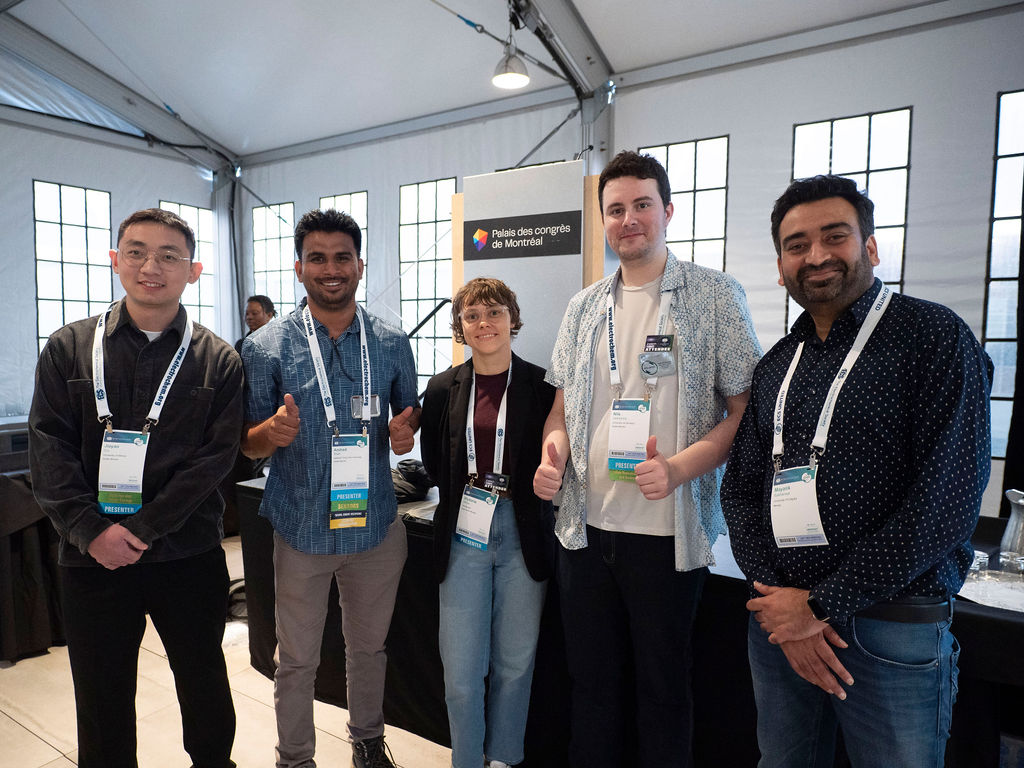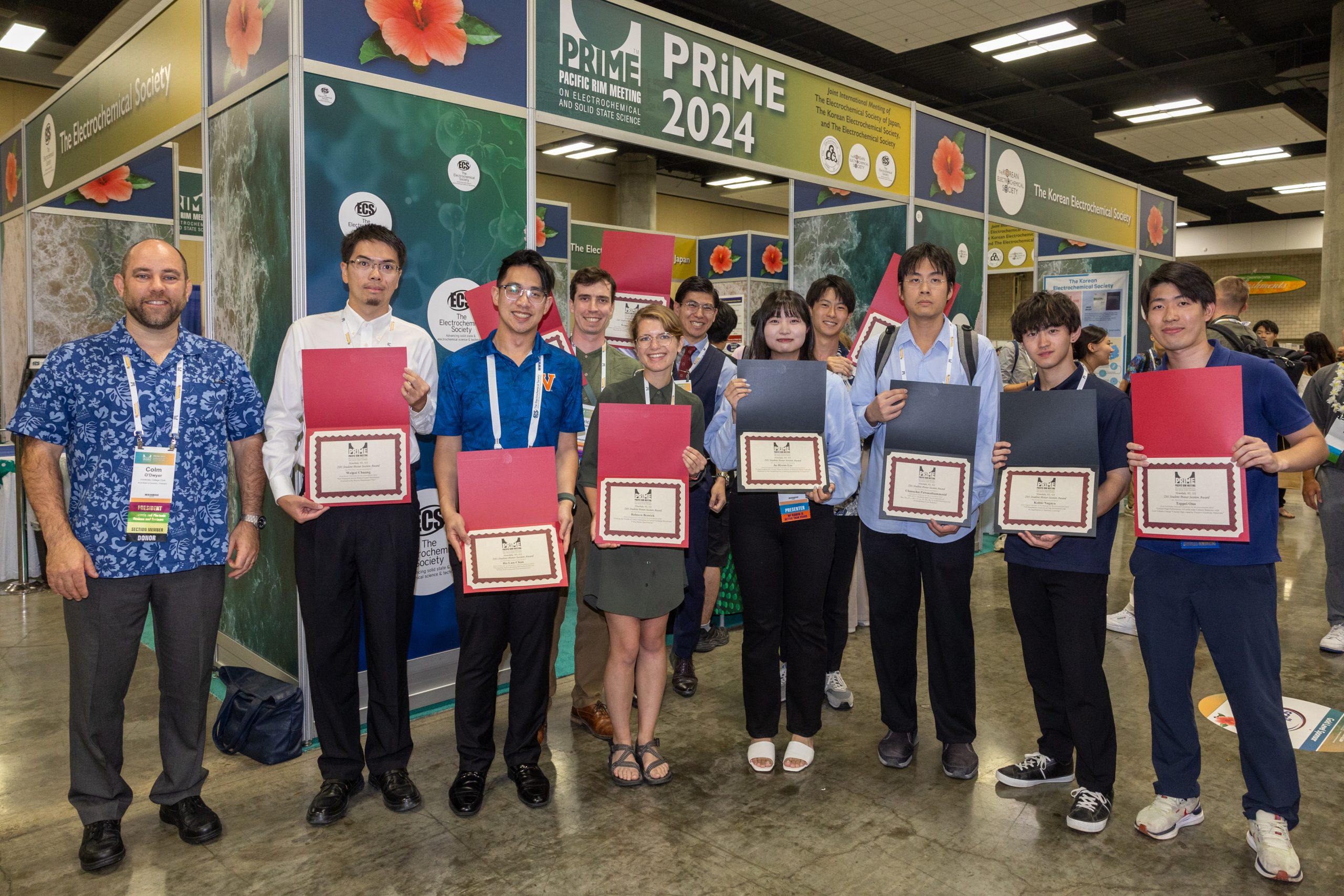Seven new student chapters in China, Lithuania, Mexico, and the US were chartered at the May 22, 2025, ECS Board of Directors Meeting. The total number of chapters in our supportive, global community is up to 161 with these new additions! (more…)
ECS Celebrates Community, Connection, and 12 Million Downloads at the 247th ECS Meeting Member Reception
Posted on May 30, 2025 by Shannon ReedThe Electrochemical Society (ECS) was thrilled to welcome members from around the world to the Member Reception Celebrating 12 Million Downloads at the 247th ECS Meeting in beautiful Montréal, Canada. Held at the Palais des congrès, this special gathering was a chance to recognize the collective impact of ECS members while celebrating a major milestone—12 million downloads of ECS content worldwide! (more…)
247th ECS Meeting: General Student Poster Session Award Winners
Posted on May 22, 2025 by Maggie Hohenadel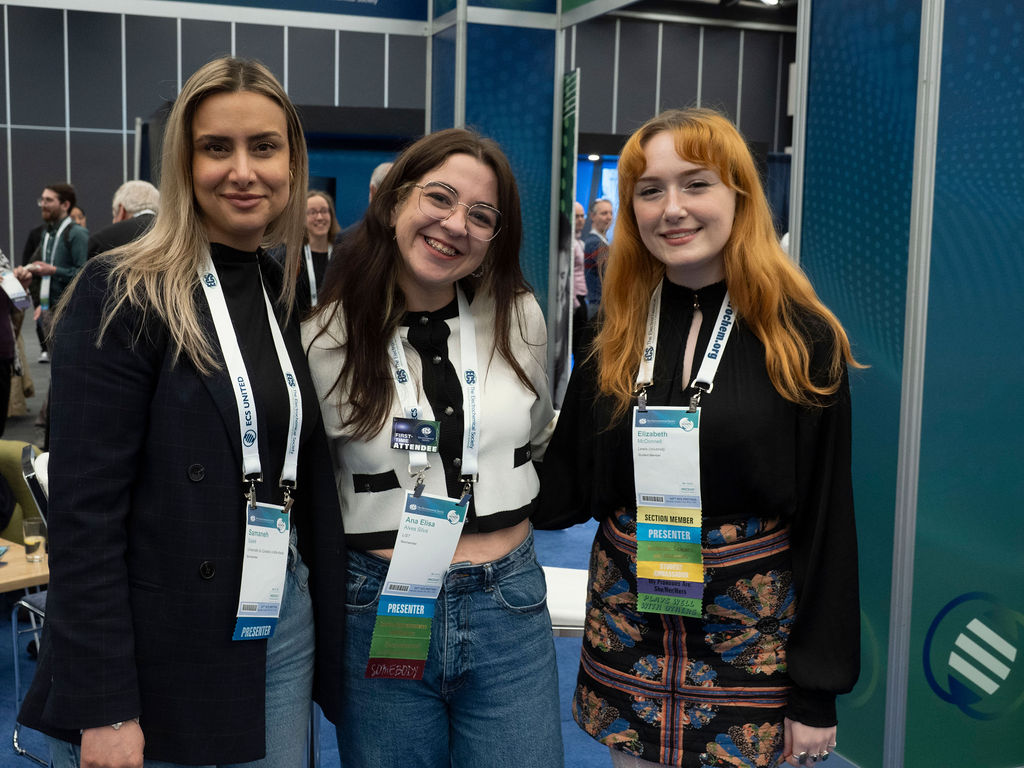
(From left to right:) Samaneh Salek, Elisa Silva, and Elizabeth McDonnell. Photo by © ECS/Todd Buchanan 2025.
Congratulations to Samaneh Salek, Elisa Silva, and Elizabeth McDonnell, winners of the 247th ECS Meeting Z01—General Student Poster Session Awards. More than 80 posters were submitted! Join us in celebrating all of the Z01 participants’ excellent work. (more…)
Il Rok Choi and Thomas Colburn to Receive 2025 ECS San Francisco Section Daniel Cubicciotti Student Awards
Posted on April 2, 2025 by Genevieve Goldy Join us in congratulating Stanford University students Il Rok Choi and Thomas Colburn, named to receive the 2025 ECS San Francisco Section Daniel Cubicciotti Student Award. Choi is recognized for his contributions to high-rate lithium metal batteries using asymmetric fluorinated ether solvents that enable fast charge transfer kinetics and high power operation. The award acknowledges Colburn’s novel methods of manufacturing nanomaterials using solution combustion synthesis.
Join us in congratulating Stanford University students Il Rok Choi and Thomas Colburn, named to receive the 2025 ECS San Francisco Section Daniel Cubicciotti Student Award. Choi is recognized for his contributions to high-rate lithium metal batteries using asymmetric fluorinated ether solvents that enable fast charge transfer kinetics and high power operation. The award acknowledges Colburn’s novel methods of manufacturing nanomaterials using solution combustion synthesis.
Learn more about the award and review the list of past recipients on the award page. (more…)
 ECS Technische Universität München Student Chapter is the 2024 Outstanding Student Chapter. Two student chapters were also named 2024 Chapters of Excellence: ECS University of Michigan Student Chapter and ECS Universität Münster Student Chapter.
ECS Technische Universität München Student Chapter is the 2024 Outstanding Student Chapter. Two student chapters were also named 2024 Chapters of Excellence: ECS University of Michigan Student Chapter and ECS Universität Münster Student Chapter.
The Society established the Outstanding Student Chapter Award in 2012 to recognize distinguished ECS Student Chapters that demonstrate active participation in the Society’s technical activities; establish community and outreach activities in the areas of electrochemical and solid state science and engineering education; and create and maintain a robust membership base.
Congratulations to all three winners for their hard work. ECS is proud to support your journey to scientific knowledge via community, connection, and career building! (more…)
Kelsey A. Cavallaro Receives ECS Georgia Section Outstanding Student Achievement Award
Posted on December 3, 2024 by ECS Staff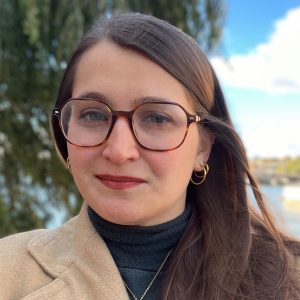 The ECS Georgia Section recognized the 2024 ECS Georgia Section Outstanding Student Achievement Award winner, Kelsey Anne Cavallaro of the Georgia Institute of Technology, at its fall meeting on November 20, 2024.
The ECS Georgia Section recognized the 2024 ECS Georgia Section Outstanding Student Achievement Award winner, Kelsey Anne Cavallaro of the Georgia Institute of Technology, at its fall meeting on November 20, 2024.
Learn more about the award and review the list of past recipients on the award page. (more…)
The ECS Board of Directors approved chartering eight new student chapters at their October 8, 2024, meeting. The Society continues welcoming new student chapters into our supportive, global community, bringing the total number of chapters around the world to 154! (more…)
 Two student members were among the 20 society, division, and section award winners recognized at the PRiME 2024 meeting in Honolulu, Hawaii. ECS student awards support and provide opportunities for students as they progress in their careers, acknowledging their dedication and outstanding achievements in electrochemical and solid state science and technology. (more…)
Two student members were among the 20 society, division, and section award winners recognized at the PRiME 2024 meeting in Honolulu, Hawaii. ECS student awards support and provide opportunities for students as they progress in their careers, acknowledging their dedication and outstanding achievements in electrochemical and solid state science and technology. (more…)
PRiME 2024 General Student Poster Session Award Winners
Posted on October 10, 2024 by Frances ChavesCongratulations to the winners of the PRiME 2024 Z01 General Student Poster Session Awards. Submissions included 378 abstracts and 195 ePosters. Thanks to the generous support from The Electrochemical Society of Japan (ECSJ) and The Korean Electrochemical Society (KECS), we were able to recognize 10 outstanding students, with Chanachai Pattanathummasid from Kyoto University taking the grand prize. Please take a moment to celebrate all the Z01 participants’ excellent work! (more…)
Ying Xia Receives 2024 Pacific Northwest Section Electrochemistry Student Award
Posted on September 3, 2024 by Genevieve Goldy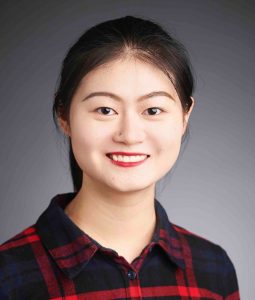 Ying Xia of the University of Washington is the 2024 ECS Pacific Northwest Section Electrochemistry Student Award Sponsored by Thermo Fisher Scientific recipient. The award recognizes Ying’s outstanding contribution to understanding and controlling dynamic processes at the electrode-electrolyte interface in energy storage devices, exceptional cross-institutional collaborative leadership in electrochemistry, and dedication to community engagement through education and outreach. The award is presented at the Pacific Northwest Section meeting held during the Oregon Electrochemistry Conference from September 19-20, 2024, in Eugene, OR.
Ying Xia of the University of Washington is the 2024 ECS Pacific Northwest Section Electrochemistry Student Award Sponsored by Thermo Fisher Scientific recipient. The award recognizes Ying’s outstanding contribution to understanding and controlling dynamic processes at the electrode-electrolyte interface in energy storage devices, exceptional cross-institutional collaborative leadership in electrochemistry, and dedication to community engagement through education and outreach. The award is presented at the Pacific Northwest Section meeting held during the Oregon Electrochemistry Conference from September 19-20, 2024, in Eugene, OR.
Learn more about the award and review the list of past recipients on the award page. (more…)



